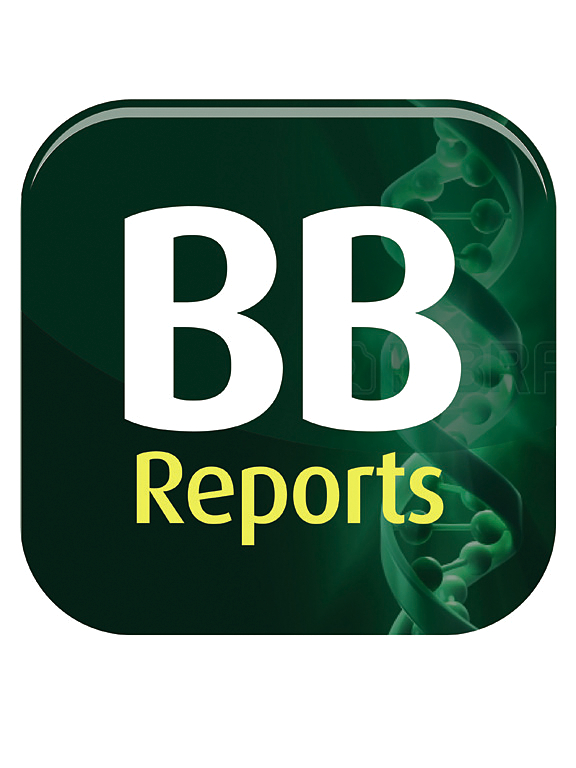HDAC5是奥希替尼早期应答基因,是表皮生长因子受体突变肺腺癌细胞耐药性的新型治疗靶点
IF 2.3
Q3 BIOCHEMISTRY & MOLECULAR BIOLOGY
引用次数: 0
摘要
异常的表观遗传调控与药物耐受性密切相关,是获得耐药性的早期步骤。我们之前报道了一种先锋转录因子(也称为表观遗传启动器)被第三代表皮生长因子受体(EGFR)酪氨酸激酶抑制剂奥西替尼快速诱导,在促进奥西替尼耐受细胞的形成中起关键作用。在本研究中,为了确定与奥西替尼耐受性相关的新型表观遗传因子,我们对奥西替尼快速诱导表达的表观遗传因子进行了全面筛选。我们的研究结果显示,HDAC5,一种IIa类组蛋白去乙酰化酶(HDAC),是几种egfr突变的非小细胞肺癌(NSCLC)细胞系在对奥西替尼的早期反应中显著诱导的表观遗传调节剂。敲低HDAC5显著减少了奥西替尼耐药细胞的出现。此外,LMK235(一种选择性HDAC5抑制剂)治疗显著增加了整体组蛋白乙酰化,并增强了奥西替尼诱导的细胞凋亡。这些发现突出了HDAC5作为克服奥西替尼耐药的新治疗靶点的潜力,并提示LMK235作为一种有希望的化合物,为接受奥西替尼治疗的egfr突变型NSCLC患者提供治疗益处。本文章由计算机程序翻译,如有差异,请以英文原文为准。
HDAC5, an early osimertinib-responsive gene, is a novel therapeutic target for the drug resistance in EGFR-mutant lung adenocarcinoma cells
Aberrant epigenetic regulation is closely associated with drug tolerance, an early step in the acquisition of drug resistance. We previously reported that a pioneer transcriptional factor (also called an epigenetic initiator) rapidly induced by osimertinib, a third-generation epidermal growth factor receptor (EGFR) tyrosine kinase inhibitor, plays a pivotal role in promoting the formation of osimertinib-tolerant cells. In this study, to identify novel epigenetic factors associated with osimertinib-tolerance, we performed a comprehensive screening of epigenetic factors whose expression is rapidly induced by osimertinib. Our results revealed that HDAC5, a class IIa histone deacetylase (HDAC), is a prominently induced epigenetic regulator in several EGFR-mutant non-small cell lung cancer (NSCLC) cell lines during the early response to osimertinib. Knockdown of HDAC5 significantly reduced the emergence of osimertinib-resistant cells. Furthermore, treatment with LMK235, a selective HDAC5 inhibitor, significantly increased global histone acetylation and enhanced osimertinib-induced apoptosis. These findings highlight the potential of HDAC5 as a novel therapeutic target to overcome osimertinib-resistance and suggest LMK235 as a promising compound to provide therapeutic benefit to EGFR-mutant NSCLC patients receiving osimertinib treatment.
求助全文
通过发布文献求助,成功后即可免费获取论文全文。
去求助
来源期刊

Biochemistry and Biophysics Reports
Biochemistry, Genetics and Molecular Biology-Biophysics
CiteScore
4.60
自引率
0.00%
发文量
191
审稿时长
59 days
期刊介绍:
Open access, online only, peer-reviewed international journal in the Life Sciences, established in 2014 Biochemistry and Biophysics Reports (BB Reports) publishes original research in all aspects of Biochemistry, Biophysics and related areas like Molecular and Cell Biology. BB Reports welcomes solid though more preliminary, descriptive and small scale results if they have the potential to stimulate and/or contribute to future research, leading to new insights or hypothesis. Primary criteria for acceptance is that the work is original, scientifically and technically sound and provides valuable knowledge to life sciences research. We strongly believe all results deserve to be published and documented for the advancement of science. BB Reports specifically appreciates receiving reports on: Negative results, Replication studies, Reanalysis of previous datasets.
 求助内容:
求助内容: 应助结果提醒方式:
应助结果提醒方式:


